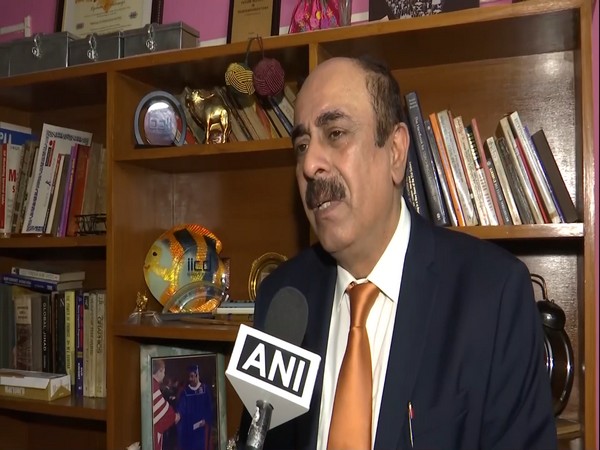Foreign affairs expert Robinder Sachdev has stated that American hegemony in the Middle East is diminishing.
Sachdev explained that Iran’s recent attack could have immediate consequences, causing the situation to escalate further.
“America’s influence seems slightly reduced as its ally, Israel, has not been following its lead. President Biden has been calling for a ceasefire, but Israel did not comply. The broader message to the world is that America’s control or influence is waning,” he said.
Speaking to ANI, Sachdev added, “The immediate implication is that this conflict will escalate. Iran has attacked Israel, and Israel will retaliate. In turn, Iran will respond again. This will likely lead to a spiralling conflict… There will also be economic disruptions, including crude oil supply and price fluctuations.”
He further noted that India’s primary concern would be the safety of its diaspora in the region.
“For India, the safety and security of our diaspora is a worry. Remittances may decline, and the costs of exports and imports could rise. The region is entering a very complicated and delicate situation,” he said.
When asked about the broader international implications, Sachdev commented that the world is becoming increasingly divided.
“This is shaping up to be a conflict between Iran and the Shia militia groups in the region versus Israel and the West. The US, Europe, and Israel are standing together. The world is becoming more divided,” he said.
Regarding the international community’s response, Sachdev stated that institutions like the UN would offer words of concern, but meaningful action is unlikely due to the UN Security Council being in a deadlock.
“International institutions will respond with concern and advice, but beyond that, they are unlikely to act. The UN and the Security Council are in a deadlock, so we cannot expect any significant intervention. The only players with influence are the US and Iran,” he added.
On the possibility of diplomatic negotiations to de-escalate the tension between Iran and Israel, Sachdev said that the scope for such negotiations has diminished.
“Unfortunately, the chances for diplomatic negotiations are slim. There was some hope with Iran’s new president, who is a moderate and seeks the lifting of sanctions. However, Israel opposes any nuclear deal for Iran, which is the core issue. Israel will take steps to prevent Iran from becoming a nuclear-armed state,” he explained.
When discussing the role of the US in providing military support to Israel and its long-term relationships with Middle Eastern partners, Sachdev said these relationships are highly complex.
“America’s relationship with key Middle Eastern partners is complicated. While the US continues to supply arms to Israel, it was also trying to broker an accord between Saudi Arabia and Israel, which has now fallen apart. Saudi Arabia insists on addressing the two-state solution, with East Jerusalem as the capital for Palestine, which Israel will never agree to. This ensures there will be no peace,” he said.
He also pointed out that despite the complexities, America’s military relations in the region will persist unless internal revolutions occur in countries like Saudi Arabia or Jordan, which could alter the situation.
On US policy in the Middle East, Sachdev said that every American president has aspired to solve the Palestinian crisis, and Biden was no different. He suggested that had the Israel-Hamas conflict not taken place, there might have been progress in normalising relations between Saudi Arabia and Israel.
“Every American president for the last 40 years has sought to solve the Palestinian issue. Biden hoped to do the same, and perhaps the Saudi-Israel normalisation would have progressed if the Gaza conflict had not erupted. Now, with the conflict, America will have to reassess and start from scratch in seeking peace in the region,” he concluded.-ANI


